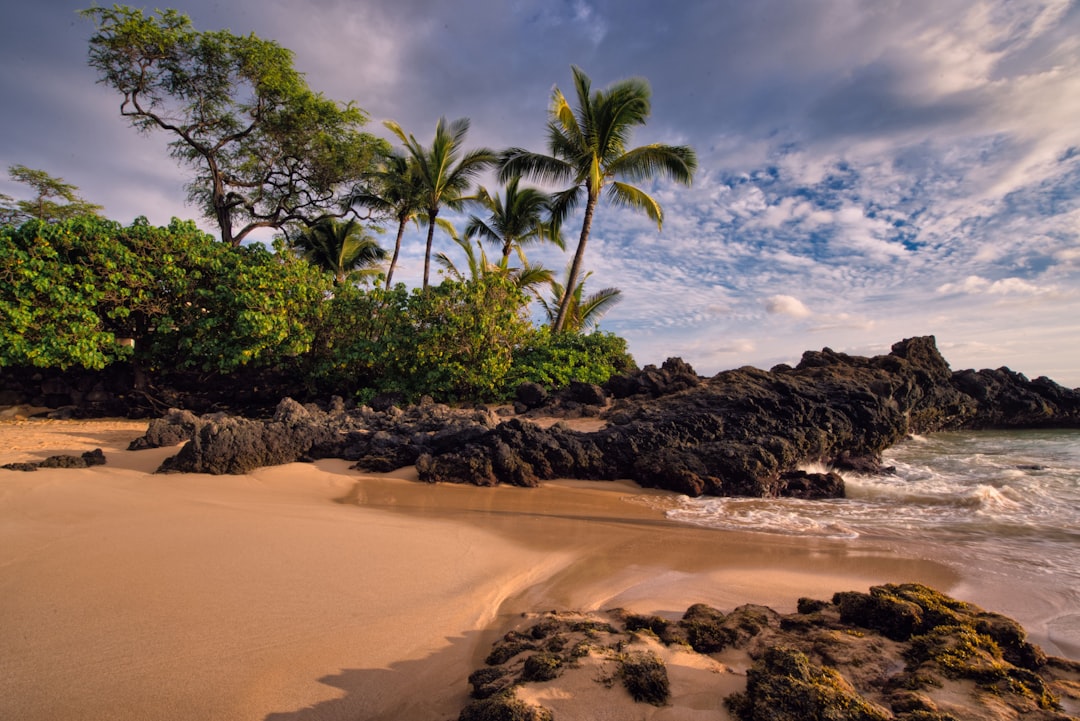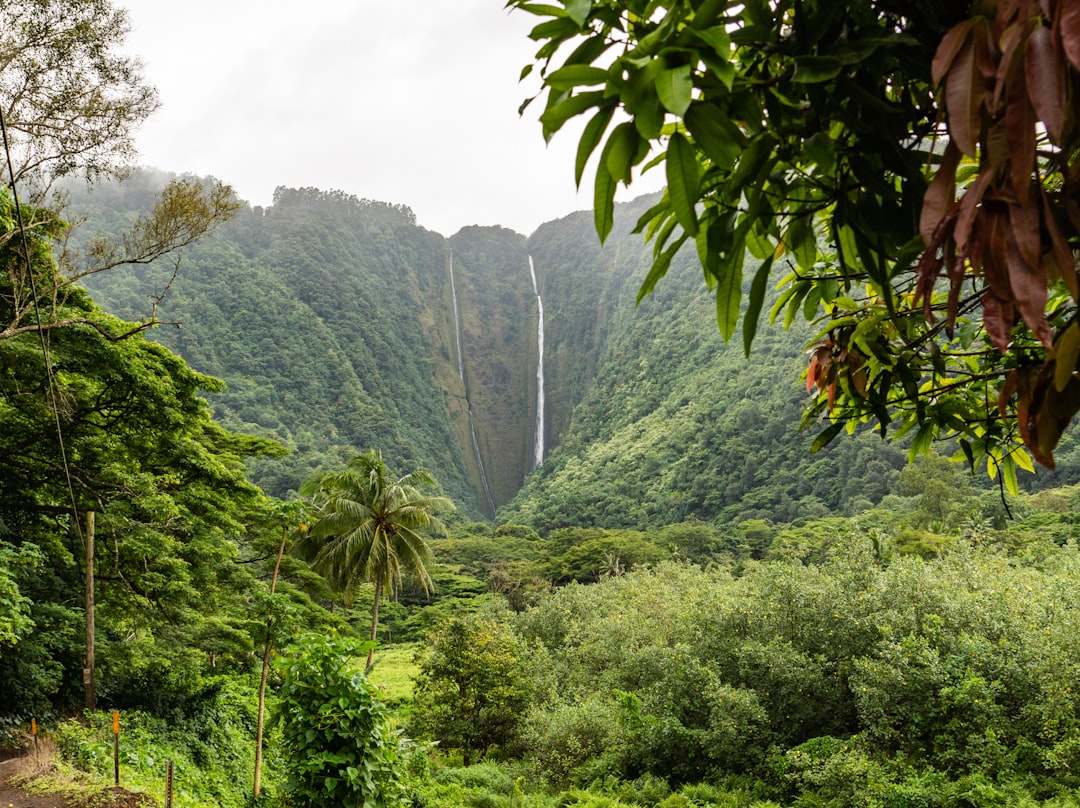Boost Your Hawaii Website’s Visibility with Location-Based Keywords
Hawaii’s unique geography and tourism industry make location-based keywords especially important for businesses in the state. With its beautiful beaches, lush landscapes, and vibrant culture, Hawaii is a popular tourist destination. This means that there is a high level of competition among businesses in the state to rank well in search engine results.
By targeting location-based keywords, businesses in Hawaii can differentiate themselves from the competition and attract more local customers. For example, a hotel in Waikiki may use location-based keywords like “Waikiki beachfront hotel” or “luxury accommodations in Waikiki” to stand out from other hotels on the island.
Identifying the Right Location-Based Keywords for Your Hawaii Website
To identify the right location-based keywords for your Hawaii website, it’s important to conduct keyword research specific to Hawaii. This involves using tools like Google Trends and Google Keyword Planner to analyze search volume and competition for different keywords.
When conducting keyword research, look for terms that have a high search volume and low competition. These are the keywords that are most likely to attract local customers to your website. Additionally, consider using long-tail keywords that include specific locations within Hawaii, such as “Maui beachfront resorts” or “Oahu seafood restaurants.”
Incorporating Location-Based Keywords into Your Hawaii Website’s Content
Once you have identified the right location-based keywords for your Hawaii website, it’s important to incorporate them into your content in a natural and relevant way. Avoid keyword stuffing, which is the practice of overusing keywords in an attempt to manipulate search engine rankings. Instead, focus on writing high-quality, informative content that includes location-based keywords where appropriate.
Include location-based keywords in headings, subheadings, and body text to signal to search engines that your website is relevant to users searching for those terms. For example, if you are writing a blog post about the best hiking trails in Maui, include location-based keywords like “Maui hiking trails” or “best hikes in Maui” throughout the content.
Using Location-Based Keywords in Your Hawaii Website’s Meta Tags
| Location-Based Keywords | Benefits |
|---|---|
| Hawaii hotels | Increases visibility for people searching for hotels in Hawaii |
| Hawaii beaches | Attracts visitors looking for information on Hawaii’s beaches |
| Hawaii restaurants | Helps people find restaurants in Hawaii |
| Hawaii attractions | Provides information on popular attractions in Hawaii |
| Hawaii tours | Assists visitors in finding tours and activities in Hawaii |
Meta tags, such as title tags and meta descriptions, are HTML elements that provide information about a webpage to search engines. Optimizing these tags with location-based keywords can help improve your website’s visibility in search engine results.
Include location-based keywords in your title tags and meta descriptions to signal to search engines that your website is relevant to users searching for those terms. For example, if you have a page on your website about snorkeling tours in Kauai, your title tag could be “Kauai Snorkeling Tours | Explore the Beautiful Waters of Kauai” and your meta description could be “Experience the best snorkeling tours in Kauai and discover the stunning underwater world of the Garden Island.”
Additionally, consider using schema markup to provide additional location information to search engines. Schema markup is a code that helps search engines understand the content on a webpage. By including schema markup with location information, such as address and phone number, you can improve your website’s visibility in local search results.
Optimizing Your Hawaii Website’s Images with Location-Based Keywords
Images are an important part of any website, and optimizing them with location-based keywords can help improve your website’s visibility in search engine results.
When naming image files, use location-based keywords to describe the image. For example, if you have a photo of a sunset in Maui, name the file “maui-sunset.jpg” instead of a generic name like “IMG_1234.jpg.”
Additionally, add alt text and captions to your images that include location-based keywords. Alt text is a description of an image that is displayed if the image cannot be loaded, and captions provide additional context for the image. By including location-based keywords in alt text and captions, you can improve your website’s visibility in image search results.
Creating Location-Specific Landing Pages for Your Hawaii Website

Creating location-specific landing pages for your Hawaii website can help target customers in specific areas and improve your website’s visibility in search engine results.
Design landing pages that are specific to different locations within Hawaii, such as Maui, Oahu, or Kauai. Include relevant information and images for each location, such as attractions, activities, and accommodations. This will help users find the information they are looking for and increase their likelihood of converting into customers.
Use location-based keywords in page titles, headings, and content to signal to search engines that your landing pages are relevant to users searching for those terms. For example, if you have a landing page about hotels in Maui, use location-based keywords like “Maui hotels” or “luxury accommodations in Maui” throughout the page.
Building Local Backlinks to Boost Your Hawaii Website’s Visibility
Backlinks are links from other websites to your website and are an important factor in search engine rankings. Building local backlinks can help boost your Hawaii website’s visibility in search engine results.
Reach out to local businesses and organizations in Hawaii and ask if they would be willing to link to your website. This could be through partnerships, sponsorships, or collaborations. By building relationships with other local businesses, you can increase your chances of earning valuable backlinks.
Participating in local events and sponsorships can also help you earn backlinks. For example, if you sponsor a local charity event, the event organizers may include a link to your website on their event page. This not only helps boost your website’s visibility but also demonstrates your commitment to the local community.
Additionally, create valuable content that other websites will want to link to. This could be in the form of blog posts, guides, or resources that provide useful information to users. By creating high-quality content, you increase the likelihood of other websites linking to your website, which can improve your search engine rankings.
Leveraging Social Media for Local SEO in Hawaii
Social media can be a powerful tool for local SEO in Hawaii. By creating social media profiles for your business and regularly posting updates with location-based keywords, you can increase your website’s visibility and attract more local customers.
Create social media profiles on platforms like Facebook, Instagram, and Twitter and optimize them with location-based keywords. For example, include your location in your profile name or bio, and use location-based hashtags in your posts.
Post regular updates that include location-based keywords to signal to search engines that your business is relevant to users searching for those terms. For example, if you have a restaurant in Honolulu, post updates about daily specials or events happening in the area.
Encourage customers to leave reviews and check-ins on social media. Positive reviews and check-ins can help improve your website’s visibility in search engine results and attract more local customers.
Measuring the Success of Your Hawaii Website’s Location-Based Keyword Strategy
Measuring the success of your Hawaii website’s location-based keyword strategy is crucial for optimizing your SEO efforts and staying ahead of the competition.
Track search engine rankings for location-based keywords to see how your website is performing in search engine results. Use tools like Google Search Console or third-party SEO tools to monitor your rankings and identify areas for improvement.
Analyze website traffic and engagement metrics to see how users are interacting with your website. Look at metrics like page views, bounce rate, and time on page to understand how users are navigating your website and whether they are finding the information they are looking for.
Based on performance data, adjust your location-based keyword strategy as needed. This could involve targeting different keywords, optimizing different pages, or creating new content to better meet the needs of your target audience.
In conclusion, incorporating location-based keywords into a Hawaii website’s SEO strategy can greatly improve its visibility and attract more local customers. By following these tips and regularly measuring performance, businesses can stay ahead of the competition and succeed in the local market.
If you’re interested in learning more about SEO strategies specifically tailored for businesses in Honolulu, you should check out this informative article on shaneperrymarketing.com. It provides valuable insights and tips on how to optimize your website using location-based keywords to attract local customers. Additionally, if you’re curious about the latest advancements in technology and how they impact marketing, you might want to read this intriguing review on shaneperrymarketing.com about Apple’s vision for the future. Lastly, if you’re a small business owner looking to understand the importance of marketing, this article on shaneperrymarketing.com offers compelling reasons why investing in marketing is crucial for your success.
FAQs
What are location-based keywords?
Location-based keywords are specific words or phrases that are used to target a particular geographic location. These keywords are used to optimize a website’s content for search engines, making it easier for users to find businesses or services in a particular area.
Why are location-based keywords important for a Hawaii website?
Location-based keywords are important for a Hawaii website because they help to target users who are searching for businesses or services in Hawaii. By using these keywords, businesses can increase their visibility in search engine results pages and attract more local customers.
How do I choose the right location-based keywords for my Hawaii website?
To choose the right location-based keywords for your Hawaii website, you should start by researching the most commonly used search terms for your industry in Hawaii. You can use tools like Google Keyword Planner to find relevant keywords and phrases. It’s also important to consider the specific location you are targeting, such as a city or region within Hawaii.
Where should I use location-based keywords on my Hawaii website?
Location-based keywords should be used throughout your Hawaii website, including in the page titles, meta descriptions, headers, and content. It’s important to use these keywords in a natural and organic way, without overusing them or stuffing them into your content.
What are some examples of location-based keywords for a Hawaii website?
Examples of location-based keywords for a Hawaii website might include “Hawaii vacation rentals,” “Maui restaurants,” “Oahu hotels,” or “Kauai attractions.” These keywords should be specific to the location and industry you are targeting, and should be relevant to the content on your website.
about author

Shane Perry Marketing. Taking your Hawaii business to the next level with online marketing.
subscribe to newsletter
Subscribe and get monthly digital marketing updates.










